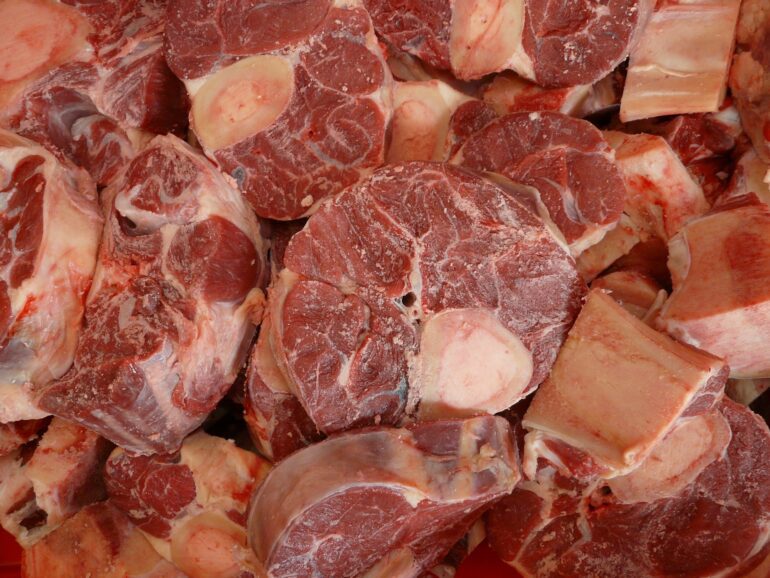TL;DR:
- Fukushima Prefecture has developed an AI-based system to evaluate beef quality while cattle are being raised.
- The system enables early and accurate assessments, aiding in determining optimal timing for beef shipments and reducing costs.
- Collaborative efforts with Obihiro University and others have contributed to the successful development of the AI-based system.
- The system utilizes ultrasound images of cattle to assess meat quality and identify growth potential.
- Livestock farmers can benefit from reduced feed costs and improved turnover rates of cattle barns.
- The AI system allows for strategic decision-making regarding cattle shipping and participation in competitive exhibitions.
- Fukushima aims to enhance brand power by consistently offering high-quality cattle and securing wins in exhibitions.
Main AI News:
Fukushima Prefecture has recently achieved a significant breakthrough in the field of beef quality evaluation through the development of an innovative artificial intelligence (AI)-based system. Unlike traditional methods that assess beef quality after the cattle are slaughtered, this pioneering system allows for early and accurate evaluations while the cattle are still being raised. Such advancements are poised to revolutionize the industry by aiding in determining optimal timing for beef shipments and reducing costs.
Meguru Hara, a prominent figure from the Fukushima Agricultural Technology Center’s livestock research institute, expressed optimism about the potential impact of this AI-powered system on beef product competitiveness. Hara emphasized the decline experienced after the devastating events of the Great East Japan Earthquake and the subsequent Fukushima No. 1 nuclear power plant disaster in March 2011. The timely development of this technology is crucial to revitalizing the region’s beef industry.
In the conventional approach, beef products are graded based on the quantity and quality of meat per animal, relying on assessments of the fat layer and meat color post-slaughter. However, the new AI-based system introduces a transformative method for evaluating beef quality. Collaborating with Obihiro University of Agriculture and Veterinary Medicine and other institutions, the Fukushima government initiated the development of this cutting-edge system in 2019.
The AI was trained using ultrasound images of cattle provided by the prefectural government and other stakeholders. This dataset enabled the AI to assess the quality of the meat and identify opportunities for growth during the cattle’s development. The early assessment system holds immense potential for livestock farmers, facilitating cost reductions in feed expenditure and enhancing the turnover rate of cattle barns. Furthermore, farmers can now make informed decisions about shipping cattle early if there is limited growth potential or selectively prepare animals with high ratings for competitive exhibitions.
Isao Inukai, a seasoned 73-year-old cattle-fattening farmer in Fukushima Prefecture’s Date City, praised the AI-based evaluation system, affirming its accuracy in judging meat quality. Inukai shared how the system transformed his shipping process, enabling him to strategically rearrange the order of cattle based on data-driven insights. This optimization has significantly improved his operations.
Following the 2011 nuclear disaster, Fukushima beef prices faced significant challenges. As of January this year, prices in Fukushima were approximately ¥90 per kilogram lower than the national average. However, this margin has diminished from the initial ¥300 gap observed after the catastrophe, according to the prefectural government. With beef-producing regions experiencing intensifying competition and escalating production costs due to soaring feed and other expenses, the Fukushima livestock research institute’s Hara emphasizes the need to bolster Fukushima beef’s brand power through the stable production of high-quality cattle and securing wins at competitive exhibitions.
To enhance the accuracy of the system, the Fukushima government aims to continually refine its AI-powered evaluation system by incorporating real-time beef quality evaluations into the AI. This iterative process will solidify Fukushima’s position as a leader in the beef industry, while fortifying consumer confidence in the quality of their products.
Conclusion:
The development of Fukushima’s AI-powered beef evaluation system represents a significant milestone in the livestock industry. This innovative technology enables early and accurate assessments of beef quality, providing farmers with valuable insights to optimize their operations. By reducing costs, improving turnover rates, and enhancing the brand power of Fukushima beef, this AI system has the potential to reshape the market landscape. The implementation of cutting-edge technology positions Fukushima as a frontrunner in the industry, bolstering consumer confidence in the region’s high-quality beef products.

